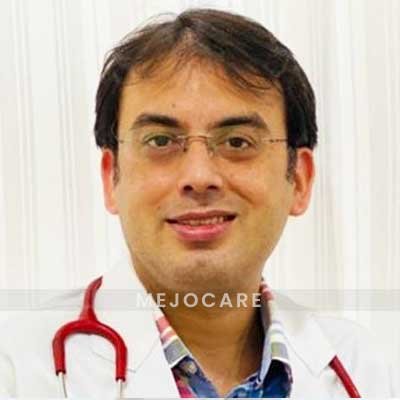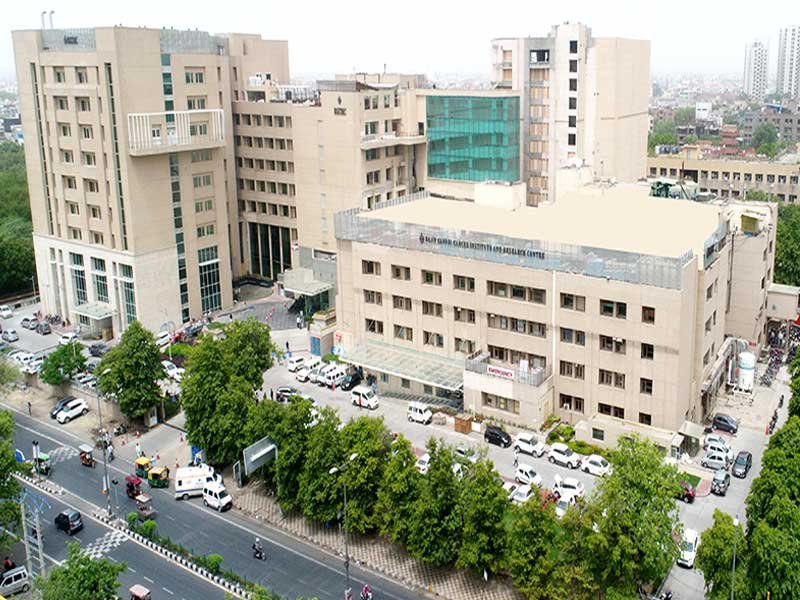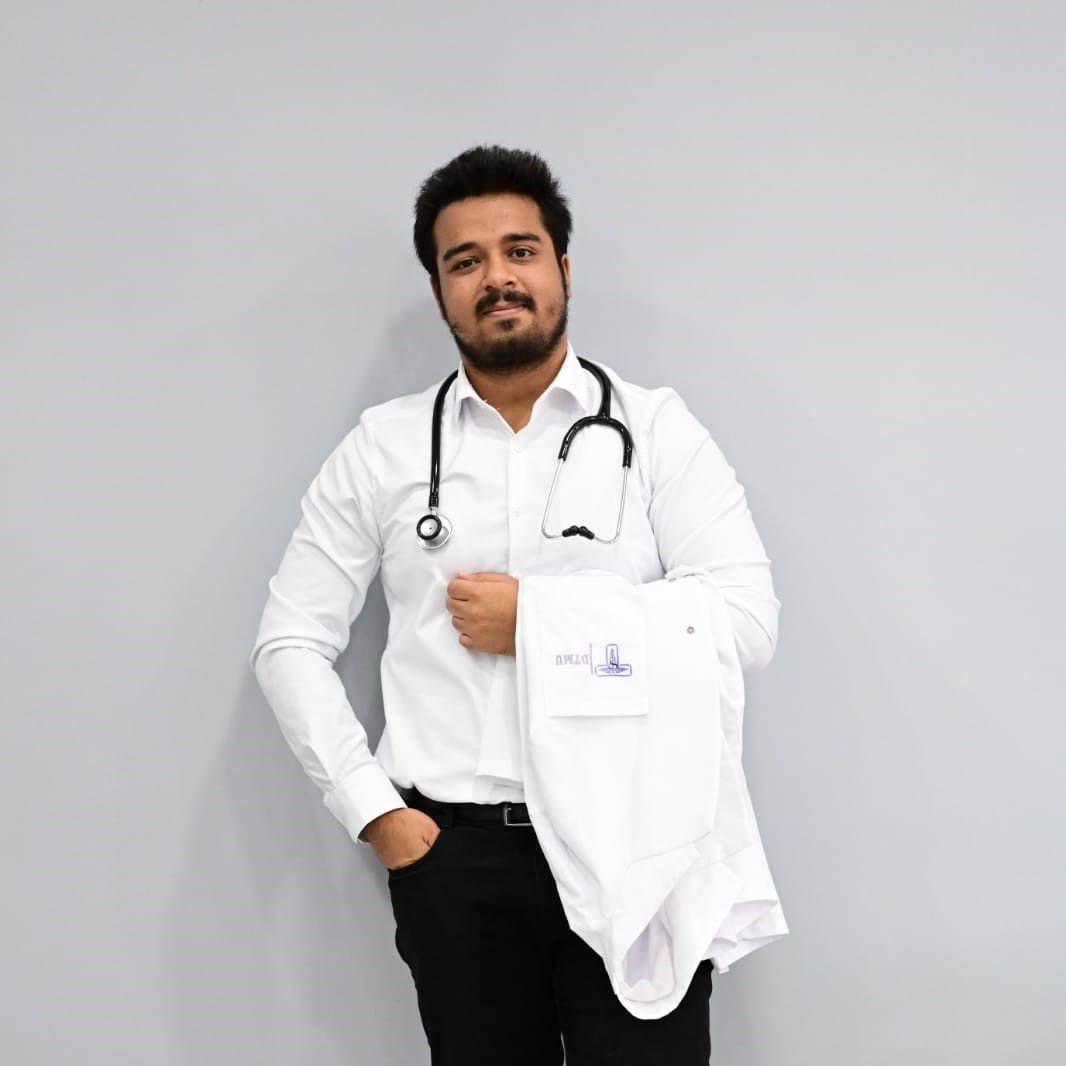Are you seeking effective thalassemia treatment? India offers advanced treatment options for international patients at the lowest cost without compromising on quality care.
Recovery Time
3 Months
Success Rate
95%
Hospital Stay
26 Days
Treatment Type
Non-Surgical
Home Treatments Hematology Thalassemia Treatment
Are you seeking effective and affordable treatment for thalassemia?
India provides advanced therapies such as bone marrow transplants and blood transfusions at a reasonable cost, all while ensuring high-quality care.
With its strong reputation for delivering excellent medical services at competitive prices, India is an ideal choice for individuals looking for affordable solutions for thalassemia treatment.
Explore the treatment options available in India, where affordability makes it the preferred destination for thalassemia care.

Thalassemia is an inherited blood disorder that affects the body’s ability to produce normal hemoglobin. However, if you have thalassemia, then your body will produce less healthy hemoglobin, and your bone marrow produces fewer healthy red blood cells, which causes anemia.

• Hospital Selection
The choice of hospital plays a crucial role in determining the overall cost of treatment. Factors such as the hospital’s location, reputation, the availability of specialised services, and the quality of care provided can all influence pricing.
• Room Category
The category of the room selected during a hospital stay can impact the overall cost of the treatment. Hospitals typically offer a range of options, from standard shared rooms to private suites.
• Doctor Expertise
A doctor’s experience and expertise can also affect the overall cost of the treatment because those doctors who have experience and are internationally trained charge higher fees.
• Diagnostic Procedures
The need for diagnostic procedures such as blood tests, imaging scans (like MRIS or CT scans), and other evaluations can add substantially to the total expenses.
• Post-Treatment Care
Post-treatment care can also affect the overall total cost, which includes expenses for follow-up appointments, medications, and potential complications. Additionally, patients who are recommended for rehabilitation or ongoing therapy increase overall healthcare costs.
Thalassemia Treatment cost
Treatment Name
Estimated Cost
Thalassemia Treatment 26000 USD
The cost of thalassemia treatment in India is affordable for international patients who are looking for affordable care without compromising on quality care. The cost includes overall treatment cost, diagnosis, rehabilitation if necessary, and other aspects as well.
Cost Component | Details | Cost in USD |
Pre-operative Consultation & Diagnosis | Consultations, X-rays, MRI scans, CT scans, and blood tests. | 1200 USD |
Treatment Costs | Includes surgeon fees, hospital stays, and treatment type. | 26000 USD |
Rehabilitation and Follow-up | Medications, supportive devices, and follow-up visits. | Variable by Procedure |
Fill in your details and we'll get back to you soonGet Free Treatment Quote
Country | Cost Structure |
India | 26000 USD |
United States | 128000 USD |
Germany | 22000-275000 USD |
Turkey | 50000-75000 USD |
Key Takeaways
✅ Affordable Treatment Cost
India offers affordable treatment costs for international patients seeking thalassemia treatment without compromising the quality of care.
✅ Advanced Medical Technology
Indian hospitals use advanced technologies to help patients achieve precise and better treatment outcomes with less recovery time.
India’s leading hospitals specialise in thalassemia treatment by providing services such as regular blood transfusions, iron chelation therapy, etc.
India has embraced advanced medical techniques for thalassemia treatment, such as bone marrow transplantation and gene therapies that help to enhance patient outcomes and quality of life.
The cost of thalassemia treatment in India is affordable for international patients as compared to Western countries, which makes it a preferred destination.
Thalassemia might cause mild to severe anemia and other complications over time, however, symptoms of anemia include:
Hemoglobin contains four protein chains, of which two are alpha globin chains and two beta globin chains, and each of them has alpha and beta, which contain genetic information, or genes, which are passed down from your parents. However, if any of these genes are defective or missing, then you’ll have thalassemia.
• Alpha Thalassemia
It's an inherited blood disorder that affects the production of hemoglobin, a protein that carries oxygen throughout the body. Additionally, it is caused by the changes in one of four alpha globin genes.
Types of Alpha Thalassemia
• Beta Thalassemia
It is caused by mutations in the genes responsible for producing beta globin, which is a component of hemoglobin.
Types of Beta Thalassemia
The symptoms depend on the type of thalassemia you have and how severe it is. Let’s have a look at these symptoms:
• Asymptomatic
You likely won’t have symptoms if you’re missing only one alpha gene, but if you’re missing two alpha genes or one beta gene, then you may be asymptomatic, and you might also experience mild anemia symptoms.
• Mild to moderate symptoms
Beta thalassemia might cause mild anemia symptoms, or it may also cause some symptoms that are associated with more moderate diseases, including:
However, you might need surgery to correct skeletal problems, and your surgeon needs to remove your spleen if it grows too large.
Thalassemia treatment is performed to treat or manage symptoms, prevent complications and get a cure by correcting the underlying genetic defect. However, for patients with moderate to severe thalassemia, the treatment focuses on maintaining healthy blood cell and hemoglobin levels.
• Necessary Diagnostic Tests
Moderate to severe thalassemia is often diagnosed in childhood because the symptoms usually appear within the first 2 years of the baby's born.
Moreover, some tests will be done to diagnose thalassemia, which include:
Tests | Description |
Blood test | It helps to diagnose hemoglobin and the quantity and size of red blood cells. |
Reticulocyte count | It helps to measure young red blood cells that show bone marrow isn’t producing enough red blood cells. |
Iron study | It helps to check whether the cause of your anemia is an iron deficiency or not. |
Hemoglobin electrophoresis | It helps to diagnose beta-thalassemia. |
Preparing for thalassemia treatment is important to ensure optimal outcomes and minimise potential complications. So, here are some factors that you should consider:
🟢 Dos Before Thalassemia Treatment
🔴 Don’ts Before Thalassemia Treatment
Mild thalassemia doesn’t require treatment, however, severe or moderate thalassemia needs treatment, which includes:
• Frequent Blood Transfusions
People with major thalassemia or severe type require regular blood transfusions to treat anemia, which involve giving blood through a tube that is inserted into a vein in your arm. However, how many times you need blood transfusions depends on the type of thalassemia you have.
• Chelation Therapy
This treatment helps to remove excess iron from your blood. However, some people with thalassemia who do not have regular transfusions can also develop excess iron, so removing it is important for your health.
• Stem Cell or Bone Marrow Transplants
Stem cell and bone marrow is the only treatment for thalassemia, but it isn’t just performed because they have some risks. Stem cells are developed in bone marrow, and they can develop into various types of blood cells. Furthermore, this procedure can help to reduce the need for lifelong blood transfusions and drugs to control iron overload.

India uses advanced technologies and techniques to treat patients with thalassemia that help to enhance patient outcomes, which include:
• Bone Marrow Transplant (BMT)
It is considered a potential treatment option for major thalassemia, which involves replacing a defective bone marrow with the heavy stem cells from a compatible donor.
• Gene Therapy
This approach emerged as a promising treatment option that involves correcting the genetic defects that cause thalassemia.
• Iron Chelation Therapy
This technology helps manage overloaded iron in the body from frequent blood transfusions. Medicines like deferiprone, deferoxamine, and deferasirox are often used to remove excess iron.

Thalassemia can lead to certain complications, which depend on the type of treatment and patient factors. Some complications include:
After treatment, patients need to stay in the hospital for 26 days, and the full recovery might take 3 months or more, yet it depends on the patient's overall health.
The success rate of thalassemia treatment is 95% in India.
Paediatric Hemato Oncologist and Bone Marrow Transplant Surgeon 20+ Years of Experience
Dr. Vikas Dua
Beds: 539
New Delhi
Beds: 230
New Delhi
Beds: 710
New Delhi
Beds: 650
New Delhi
Beds: 191
New Delhi
Beds: 310
New Delhi
Beds: 330
Gurugram
Beds: 380
New Delhi
Beds: 402
New Delhi
Beds: 1300+
Gurugram
Beds: 1000
New Delhi
Beds: 500
New Delhi
Beds: 450
Faridabad
Beds: 675
New Delhi
Beds: 500
New Delhi

Max Super Speciality Hospital, Saket

Aakash Healthcare Super Speciality Hospital

Indraprastha Apollo Hospital

BLK Max Super Speciality Hospital

Dharamshila Narayana Superspeciality Hospital

Fortis Escorts Heart Institute

Fortis Memorial Research Institute

Manipal Hospital Dwarka

Max Super Speciality Hospital Shalimar Bagh

Medanta - The Medicity Hospital

Moolchand Kharaiti Ram Hospital

Rajiv Gandhi Cancer Institute and Research Centre

Sarvodaya Hospital

Sir Ganga Ram Hospital

Venkateshwar Hospital
• Team of Top Pediatric Hematologist
We recommend doctors who have experience of over 20 years in treating blood disorders like thalassemia.
• JCI/NABH Accredited Hospitals
Mejocare partners with hospitals that are accredited by JCI and NABH. These hospitals feature advanced facilities and the latest technologies, such as Gene Therapy, Iron Chelation Therapy, etc, and advanced diagnostics providing comprehensive and personalised care.
• Other Benefits
We provide quick, clear responses and accurate cost estimates. We can help you get medical visas and find accommodation in India.
We focus on scheduling your appointments and ensuring a smooth arrival experience. This includes airport pickup, hotel transfers, and full support during your hospital stay.
Patients with thalassemia trait have a typical life expectancy, yet heart problems can occur with beta-thalassemia major can make this problem fatal, yet the outlook of this issue has improved. So, if you have thalassemia and are seeking affordable treatment, then India is waiting for you.
Disclaimer
The information given in this article is only for general information, and it does not provide exact cost estimates. So, if you are seeking a professional opinion and an exact cost estimate, we can help you with that by connecting India’s best pediatric hematologists. Contact Mejocare Now.

Medically Reviewed By
QualificationsMBBS, DTMU University, Georgia.Radiation Oncology Resident at Burdwan Medical College and HospitalDr. Aryan Malhotra is a skilled and caring doctor. He is a Radiation Oncology Resident at Burdwan Medical College and Hospital. He treats people with cancer and works closely with patients during their treatment.He completed his MBBS from David Tvildiani Medical University in Georgia. He has passed the USMLE... Read More
Registration Number: 95565
Qualification: MBBS, MD from DTMU University, Georgia, Radiation Oncology Resident at Burdwan Medical College and Hospital
The average cost of Thalassemia treatment in India is 26000 USD.
The success rate of Thalassemia Treatment in India is around 95%.
The process usually involves approximately 10 to 28 days for the initial transplant sessions, followed by a full recovery period spanning from 3 months to a year.
You might face various complications such as heart disease leading to heart failure or arrhythmias, chronic liver hepatitis progressing to cirrhosis or sometimes Hepatocellular carcinoma, and endocrine problems like hypogonadism, hypothyroidism, diabetes, and hypoparathyroidism. There's a risk of stunted growth, osteoporosis, and thrombophilia, which are still common concerns that might arise after the transplant.
Yes, it is necessary to have a companion.
It's recommended to refrain from traveling for at least 100 days post-transplant. Following this period, it's advisable to avoid air travel or using public transport for the subsequent 9 to 12 months to minimize the risk of infection. Limiting unnecessary travel is crucial to reduce the chances of potential complications.
Yes, you can do your own research and choose your therapist.
You can use Paracetamol regularly to manage mild to moderate pain. Moderate pain can be managed using non-steroidal anti-inflammatory drugs (NSAIDs) like diclofenac or ibuprofen.
Yes, insurance will cover the cost of a Thalassemia treatment in India.
To discover the top doctors or hospitals in India, you can visit our website, mejocare on the doctors' page, you can filter and find the finest doctors, while on the hospital page, you can identify the best hospitals. Additionally, you can reach out to us, and we will gladly offer you all the necessary suggestions and information you need.
Thalassaemia usually requires lifelong treatment with blood transfusions and medicine.
No, there is no waiting list for Thalassemia treatment in India.
Before surgery, your doctor might run tests to check for thalassemia. These tests usually involve a complete blood count (CBC) to examine red blood cell levels and hemoglobin. Thalassemia patients often have fewer red blood cells and lower hemoglobin than usual.
The primary anesthesia used for bone marrow donor procedures is general anesthesia. While local anesthesia is an option, its use of lidocaine across multiple puncture sites can carry significant cardiovascular risks.
Within 3-9 months depending on your type of transplant.
Patients with weakened immune systems should prioritize food safety to avoid illnesses. Following food safety guidelines, avoiding risky foods, and consulting healthcare professionals about any concerns are crucial. Adequate nutrition supports healing, preventing infections, and repairing tissue damage from treatments like radiation or chemotherapy.
After surgery, it's crucial to monitor your vitals and manage any complications that may arise. Proper wound care helps prevent infections, and rehabilitation services aid in your recovery. Regular follow-ups ensure everything's progressing well post-surgery.
Our care team can help you.
